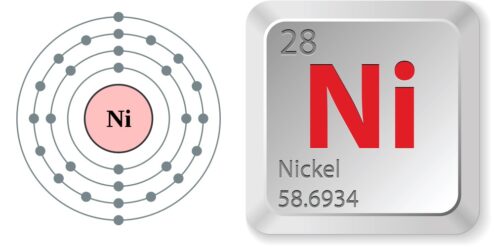Introduzione: Nickel is a trace mineral that naturally occurs in various foods. While it is necessary for the body in small amounts, excessive intake can lead to health problems in some individuals. One of the foods that often comes under scrutiny for its nickel content is the avocado. This article aims to provide a comprehensive analysis of whether avocados are high in nickel and the impact of high nickel foods on health.
Understanding Nickel Content in Foods
Nickel is a trace element found in a variety of foods. It is present in varying amounts in different food groups, with the highest concentrations typically found in legumes, whole grains, and certain types of seafood. However, the nickel content in food can also be influenced by factors such as soil quality, food processing, and cooking methods. For individuals who are sensitive to nickel, it is important to understand which foods are high in this mineral. This can help manage symptoms of nickel sensitivity and prevent potential health problems.
The Nutritional Profile of Avocados
Avocados are a nutrient-dense fruit known for their high content of healthy fats, particularly monounsaturated fats. They are also rich in dietary fiber, vitamins K, C, E, and B-6, and minerals such as potassium and magnesium. Avocados also contain small amounts of other minerals, including copper, zinc, and manganese. However, their nickel content is not as well-known or frequently discussed.
Are Avocados High in Nickel?
The nickel content in avocados can vary depending on factors such as the soil in which they are grown and the variety of avocado. Some sources suggest that avocados may contain moderate amounts of nickel, but it is generally not considered one of the highest nickel-containing foods. However, for individuals with a nickel allergy or sensitivity, even moderate amounts of nickel can cause symptoms, so it’s important to monitor individual reactions to different foods.
The Impact of High Nickel Foods on Health
For most people, consuming foods that contain nickel is not a concern. However, some individuals may develop a condition known as systemic nickel allergy syndrome (SNAS), where they experience allergic reactions to foods with high nickel content. Symptoms can include skin rashes, itching, digestive problems, and in severe cases, systemic reactions. It’s important to note that this condition is relatively rare, and most people can consume nickel-containing foods without any adverse effects.
Managing Nickel Intake through Diet
If you have been diagnosed with a nickel allergy or sensitivity, it’s important to manage your nickel intake through your diet. This can involve avoiding or limiting foods known to be high in nickel, such as certain legumes, whole grains, and seafood. It can also involve incorporating more foods that are low in nickel into your diet. However, it’s important to do this under the guidance of a healthcare professional, as overly restrictive diets can lead to nutrient deficiencies.
Alternatives to Avocado for Low Nickel Diets
If you need to limit your intake of avocados due to their nickel content, there are plenty of other nutrient-dense foods you can include in your diet. For example, fruits such as bananas, apples, and berries are typically low in nickel. Vegetables like broccoli, cauliflower, and sweet potatoes are also good options. For healthy fats, consider foods like olives, coconut, and certain types of fish, which are generally low in nickel.
Conclusioni: While avocados may contain moderate amounts of nickel, they are not typically considered a high-nickel food. However, for individuals with a nickel allergy or sensitivity, it may be necessary to limit their intake of avocados and other moderate-to-high nickel foods. As always, it’s important to consult with a healthcare professional before making significant changes to your diet.
Per approfondire:
- Nickel Allergy – Mayo Clinic: This link provides comprehensive information on nickel allergy, including symptoms, causes, and management strategies.
- Avocado – USDA FoodData Central: This link provides detailed nutritional information for avocados, including their mineral content.
- Systemic Nickel Allergy Syndrome – NCBI: This link provides a scientific article on Systemic Nickel Allergy Syndrome, a condition that can occur in individuals with a nickel allergy.
- Dietary Nickel as a Cause of Systemic Contact Dermatitis – Journal of Clinical and Aesthetic Dermatology: This link provides a scientific article on the role of dietary nickel in causing systemic contact dermatitis.
- Nickel in the Human Diet – Nickel Institute: This link provides information on the presence of nickel in the human diet, including which foods are high in nickel.


